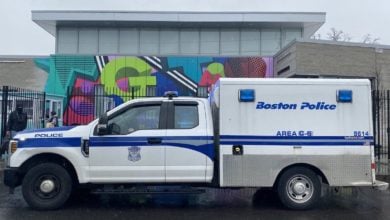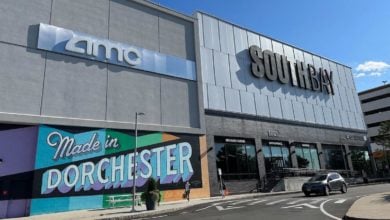Since the World Health Organization announced that COVID-19 had reached the level of “pandemic,” Liberation News reporters have been conducting interviews with fellow working class people across the country about how the reverberating effects of this virus are changing their lives. We talked to baristas, healthcare workers, teachers, artists, people experiencing homelessness and more from Boston, Massachusetts to Portland, Maine. These interviews have been edited for clarity and length.
Duaa Zahra works three part time jobs to pay the bills. At all three jobs, Zahra has experienced cut hours and paychecks while worrying about family and friends in Iraq. — Rye, New Hampshire
I think the government should have been more prepared, like yesterday. [They should] believe in science. Not just now when there is a pandemic, but overall, they have been showing us how incapable they are of having leadership skills, intellect, compassion or any decency to actually work for the people… I think the human race has to be checked. This is an actual “wake up call” considering the nature of this virus and how it’s spread… we are told by scientists that this possibly have came from the wild life (bats) and we must ask ourselves — are we exploiting nature and its beings to the verge of our extinction now? When will we stop, pause and change our collective choices?
I see some bills being introduced to provide $1000 a month for people, but that doesn’t even cover people’s rent. So there has to be a way to “bail people out” of this catastrophe the way the government bails [out] banks in a split second… build more hospitals, provide more test kits, offer public services to people.
Amrita is a Boston Public Schools teacher and has been working in the district for five years. — Boston, Massachusetts
I think I’m most worried for students. We had students [on Monday] in class to kind of prepare for this and I think for most students there was a lot of fear and sadness about not being able to come to school and have that as a safe place and a community. I think the loss of community is probably the biggest worry, especially because students of Boston are going to disproportionately [be] affected by the crisis, because it’s going to heighten the existing inequalities that are in place. So they’re making an effort to make sure that students have Chromebooks and access to the internet, but that doesn’t mean that students have space and a home for them to do their work.
You can’t technocrat your way out of inequality and lack of access to resources… My students are older too, so they’re going to feel the pressure of hours being cut, jobs being cut and not being able to… send money back home to families in other countries. It’s great that there’s a moratorium on evictions right now, and there are all these food distributions that are available, but there are other things that are going to make people’s lives hard. The biggest thing I’m worried about is probably also students who are undocumented, because if you’re undocumented and you lose your job, you can’t apply for unemployment.
Pedro has been experiencing homelessness for two years and is a guest at a shelter in the South End. This interview was translated from Spanish. — Boston, Massachusetts
It has changed my life, the virus, because it is a deadly virus. It is a virus that does have a [treatment], and they are still looking for a cure, but I know that in Cuba they already found the [Alpha 2b] solution… and are already improving it every day to have it available in hospitals, at the clinics, etc…
In the shelter there is no preparation for the virus. Everybody there — it’s like a jungle. Everyone is sick… and they need more attention. And they need a larger site. And more trained people so they can work with the sick… I am most concerned with the life of human beings … It is a life that every day, every second people die if they do not have the antidote… The government should concentrate on the cure and day-by-day concentrate on perfecting the cure.
Andy Marion started working at Crackskulls, a small bookstore and coffee bar, just about a month ago. — Newmarket, New Hampshire
Everyone is nervous, it’s all we talk about with each other or customers. We all go back and forth about whether we’re over reacting and ways to stay safer. We’ve cut our hours and are only accepting takeout orders. No one is allowed to sit and hangout in the cafe anymore to limit contact. The owner of the coffee shop I work at has been wonderful and totally transparent about trying to decide what to do asking for advice and ideas about whether to close or take other steps. She has made it clear that it’s optional for us to come in and she will fully understand if we decide to stay home, and is guaranteeing a job at the end of this if we do.
As awful as a situation it is, I’m encouraged by how responsive folks have become to the ideas of abolishing rent, eliminating debt, and providing healthcare, especially from people who beforehand would have completely dismissed me.
I’m worried about the xenophobia that will almost certainly result from this and how it will take shape…. People will be hurting from this for a long time in ways we can barely predict. My queer/trans working class fam is at the front of my mind too. How many will be forced to rely on unaccepting family? How many will be forced into higher risk jobs? How many will have to prioritize food and housing over our HRT [hormone replacement therapy] or therapist sessions etc.? Personally, I’m concerned about having to face the familiar choice of not refilling my T [testosterone] in order to pay my other bills.
Bryce Kieren Healy is a Cataloguer for Boston Public Libraries and a union steward. — Boston, Massachusetts
If you had asked any librarian a week ago, with any experience in dealing with the public, “How do you best institute social distancing in a public library?” I think the answer most people would have given you is, “Well, you can’t do that.” I think that if it had been up to the librarians, either library workers in the Boston Public Library, or even up to a lot of our patrons, frankly, I think that we would have shut down a lot earlier.
Statistically, the majority of us are far closer to being broke and homeless than we are to ever being a millionaire. If the majority of Americans can’t afford an $400 emergency, and looking at projections that we could be basically on lock-down or self-isolation — however you want to call it — for eight weeks, that’s a long time to potentially not be able to work. I’m very fortunate that I have a job that’s… unionized so we do have some strength and power in the workplace. I’m also very fortunate and lucky that I have a job where I’m able to work from home. That’s not a luxury that’s allotted to a lot of people, or a possibility even.
It’s curious to me that we have all these jobs in our society that are well-compensated and supposedly necessary and glamorous, but this week it’s demonstrating pretty clearly that it’s people on the front line, workers, people stocking grocery stores, people growing food, people driving cabs, people working libraries, people staffing and teaching classes, these are the people whose jobs really matter and the people who drive the economy in this society.
Liberation News spoke with an AIDS Action employee. They have been working in housing access for a year and a half. — Boston, Massachusetts
I was literally in tears multiple days last week from the stress and panic that I was feeling about my clients, and about the possibility that I (or other of my coworkers) are silent carriers…. I was seeing new data about how frequently people under thirty can be asymptomatic and contagious. So I was feeling a very high level of anxiety and panic while watching these very high-risk people come in the building…
Fenway Health and AIDS Action could have responded better. I wish that last week we had been calling our clients and having conversations about this. Educating staff to be able to have conversations with clients since we have interpersonal relationships — they trust us, we have their phone numbers, we know where they live, we have all the resources that we need to make sure that these people who are at high-risk are getting accurate information and feel prepared and connected to resource networks that can minimize their risk. I think that being more proactive about informing the more vulnerable populations would have made a big difference…
Reflecting on it, it really made me realize how important [communication between rank-and-file workers] is and that we shouldn’t really have been waiting for management to make these decisions, especially in the way that they were making decisions and precautions about staff way sooner than they were about clients. I think that’s because they don’t see clients. They don’t know the clients. They’re just numbers to them. They’re people to me. I know all of them. I know their life stories. I know everything about them, basically. I think I really learned from it how important it is for the direct staff workers to be the ones making policies or making decisions — and they didn’t even ask us for feedback, for ideas.
Myles Bullen is a performing artist who has been touring full time for five years. So far, Bullen has cancelled 30 shows and two tours. — Portland, Maine
The whole industry is f***ed. Cause even if stuff is okay in May, are people gonna go? Venues are hurting just as bad as artists are, because they’re thinking “even when everything’s okay, if things are okay, how long until we fully recover people’s trust?” My entire Canada tour got cancelled in one day…. I’ve had to seek alternative ways of paying bills like writing, doing commissions for other artists, making custom art for people. I’m gonna be doing a virtual writing workshop tomorrow with this addiction recovery center. So that’s cool.
I definitely have had an incredible amount of support the past couple days, people are ordering merch and buying albums. Which I am grateful for, but I also can’t depend on for the future. My plan is to keep creating content, keep creating art, and staying consistent with what I’m offering, cause that’s all I can do in the end. I don’t have anything else right now going for me. All of my work involves interacting with people, everything I do.
I think we’ve been f***ed for a long time. Everyone’s freaking out like now is an awful time, or “things are crazy” — I keep hearing that. I’m like, “Yo, things have been crazy, you’ve just been f***ing comfortable.” I’m not more scared now than I was a f***ing month ago of the world collapsing. If anything, I feel more solidarity now than ever. This virus is like Trump becoming president — in the same way it woke a lot of people up to actually be aware of what’s going on in the world. The world is not more f***ed up, just more people are aware of it now.





